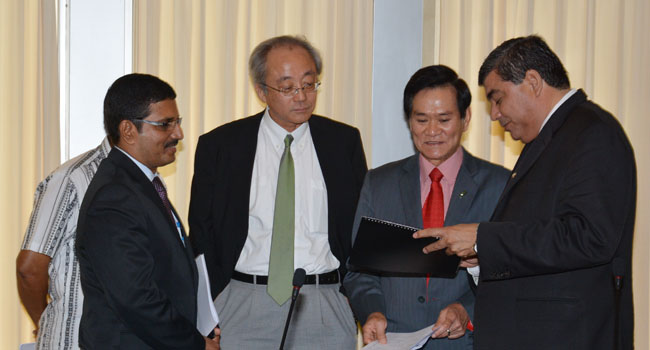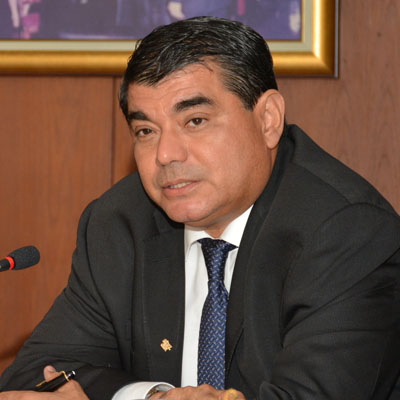of five officials from UJAT for the signing ceremony on 17 July 2015,
expressed a keen desire to work with the Asian Institute of Technology,
saying his university and the institute have much in common in terms of
societal mission and academic and research agenda.
Both institutions have a climate change center and possess reputable
academic programs in energy and food production, he said. Other fields
which can be explored under the agreement are Applied Genetics and
Biotechnology, Energy and Wireless Sensor Technology.
President Worsak said he was impressed by UJAT's "Social Inclusion"
ethos, and pointed out its similarity to AIT's guiding principles. The
AIT president welcomed the new partnership with the largest university
in southeastern Mexico.
UJAT has an enrollment of 29,000 undergraduates and about 1,000
postgrads. Dr. Gutiérrez was also impressed by AIT’s postgraduate
emphasis, saying his university could support some 6-week student
exchanges to AIT through its “scientific summer” program, and also
6-month student mobility programs.
Dr. Gutiérrez added that if the case for social benefit was made clear,
the university would be in a position to apply for financial funding
support through national government agencies for UJAT students and
staff to earn Masters and Doctoral degrees at AIT, mainly in
aquaculture.
A big priority of the Mexican government is greatly increasing food
production to feed its 120 million citizens. Currently the country
imports half of its required annual food intake, Dr. Gutiérrez
said.
UJAT is located in Tabasco, a state in southeastern Mexico possessing
huge oil and natural gas reserves. Dr. Gutiérrez told AIT officials
that his public university is, however, mindful of the future and the
day energy stocks will end. “I believe aquaculture is a huge growth
industry in Mexico and we plan to develop it as a vital sector for the
local economy,” he said.
Assistant Prof. K. R. Salin of the Aquaculture and Aquatic Resources
Management (AARM) field of study at the School of Resources,
Environment and Development previously worked with UJAT and liaised to
establish the new partnership.
After touring some research areas with Dr. Salin, Dr. Gutiérrez said he
was convinced Thailand and Mexico share many objectives in common. “We
have the same attitude and latitude with this part of the world when it
comes to farming and food.”
The rector also shared his view that AIT and UJAT are a good fit for
each other. “Both institutes aim to apply research to extension work in
order to improve farmers’ results. Just like AIT does this for the
Asian region, we want to improve our research to benefit Mexico and
Central America.”


